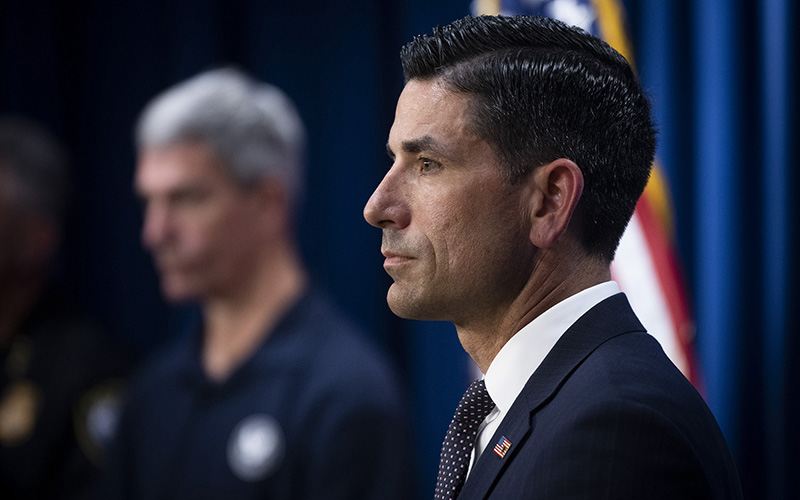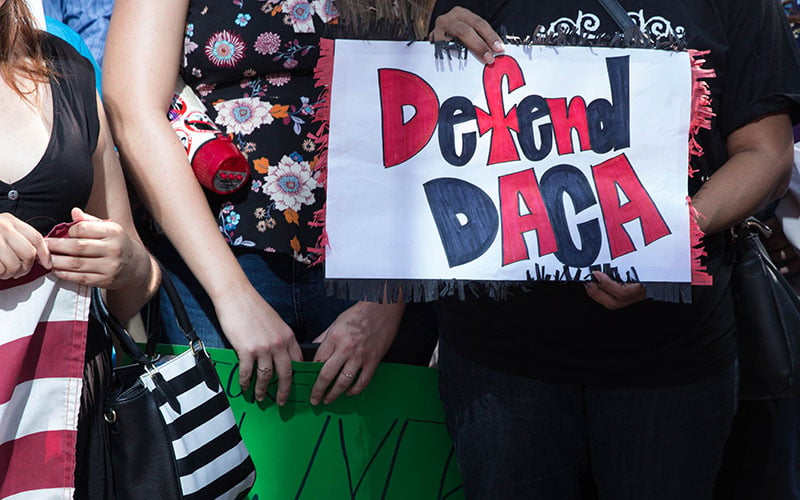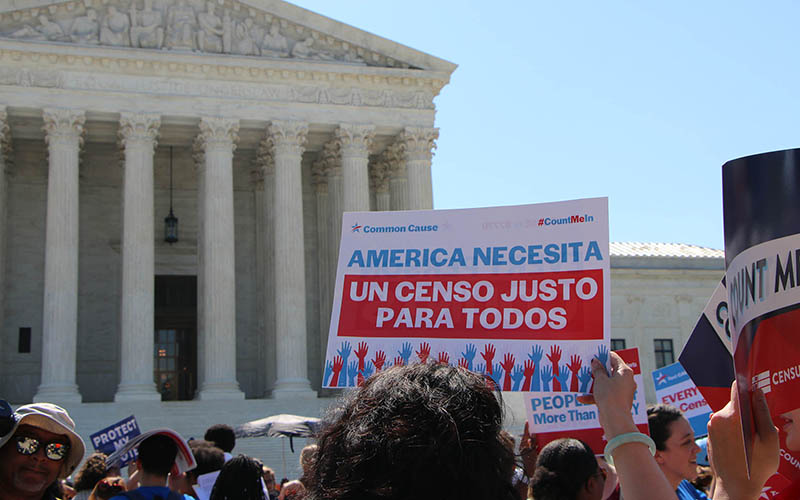PHOENIX – The Trump administration said Tuesday it will stop accepting new Deferred Action for Childhood Arrivals applications and will limit DACA renewals to one year while it undertakes a “full reconsideration” of the Obama-era policy.
The Department of Homeland Security announcement comes one month after the Supreme Court rejected the administration’s previous efforts to end the deferred deportation policy, and critics called Tuesday’s action little more than a ruse to kill the program again.
“This is another example of the actions that the Trump administration is taking to ensure thousands of Dreamers are living a life of uncertainty, fear, and anxiety,” said Reyna Montoya, CEO and founder of Aliento, as well as a DACA recipient.
But Acting Homeland Security Secretary Chad Wolf said in a memo to agency heads that the pause is needed so the department can “take action to thoughtfully consider the future of the DACA policy, including whether to fully rescind the program.”
In the memo, Wolf announced three immediate changes to DACA: new applications will be rejected and filing fees refunded, renewed applications will only be good for one year instead of the current two, and advance parole – which lets DACA recipients leave and re-enter the country – will be rejected without “exceptional circumstances.”
Under DACA, undocumented immigrants who were brought to the U.S. as children could apply for a deferral of deportation if they had a clean record, were working or in school and met other criteria. DACA recipients could get driver’s licenses and work authorizations, allowing many who knew no country but U.S. to come out of the shadows, supporters said.
But critics called the program an executive overreach by President Barack Obama, and President Donald Trump targeted it for elimination during his 2016 campaign.
Rep. Raul Grijalva, D-Tucson, said Tuesday that the Wolf memo ignores the fact that “DACA recipients are working in essential jobs right now, the amount of taxes they pay, or the fact that many of them only know the United States as their only home.”
“Once again, the Trump administration is flouting the law and defying the courts to continue enacting their xenophobic agenda—regardless of how many hard-working young people and their families are caught in the crosshairs,” Grijalva said in a statement.
But a senior administration official said during a White House conference call Tuesday that the changes are needed to do the “comprehensive review” of DACA that the Supreme Court said was missing in the first attempt to wind down the policy.
“Obviously, to do this correctly and thoughtfully, the review will have to take time,” the official said. “We won’t weigh in on how long that will take because it’s a question of a careful review of all the documentation that was provided” as justification by former Acting Secretary Elaine Duke, former Secretary Kirstjen Nielsen and former Attorney General Jeff Sessions for ending the program.
While the administration is calling it a review, the decision has likely already been made, said David Bier, an immigration policy analyst of the Cato Institute.
“They’re not saying that they’re canceling DACA, but they certainly sketch out reasons for ending it and say they’re considering ending it,” Bier said. “That’s my … operating assumption that this is as good as a termination and we’ll probably see the actual termination after the election.”
Ayensa Millan, managing attorney with the CIMA Law Group in Phoenix, said the memo will result “in a freeze in DACA … all over again” as the case works its way through the courts once more and while undocumented immigrants face the loss of their jobs, houses and more.
“At this point, there is a full reliance on that (DACA protection) and if they were to lose DACA they can lose their homes if they have a house, they could lose their job because the companies require them to have a valid employment authorization card,” Millan said. “That is going to impact their families, their kids who are U.S. citizens, (and) their spouses if they are married to U.S. citizens.”
She also said the move will affect the economy because DACA recipients who have lived in the U.S. their entire lives and who have had the “opportunity to be able to work, to go to school … buy homes” will no longer be able to contribute to the economy.
Bier agreed that the memo could mean “fewer workers contributing to economic growth will slow economic growth, and that would certainly be detrimental at any point.”
The one-year renewals for people who currently have DACA protection will enable DACA recipients to maintain work authorization for now, he said. But he said the memo does “put the ball in Congress’ court,” which can act to save the program permanently, or not.
Montoya said the memo is just another attempt by the administration to scare DACA recipients, also known as Dreamers.
“We at Aliento are commied to connue to support Dreamers and the undocumented community until we are able to live in peace without the fear of deportation,” she said in a statement.
Despite the unknowns, Jose Patino, Aliento’s director of education and advocacy, said in the same statement that advocates will work to overcome whatever comes next.
“This administration has had years to propose a legislation that would provide certainty for immigrants, yet they haven’t,” Patino said. “We are resilient and have overcome many obstacles, we will triumph through this adversity.”




